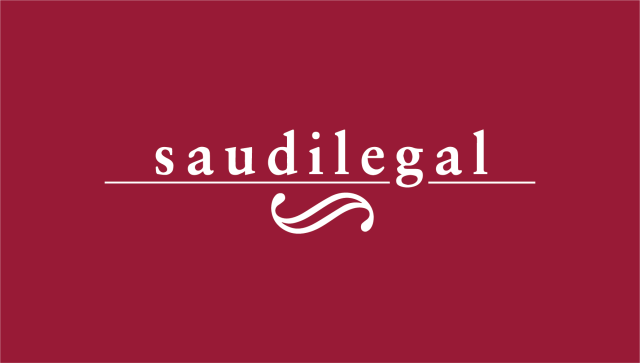Saudi Arabian Law Overview
Investing in Saudi Arabia
Since 2000, Saudi Arabia has gone through an opening up of its hitherto protectionist economy. These reforms began with the enactment of the Foreign Investment Regulation, Royal Decree No M/1 of 5 Muharram 1421 Hejra (corresponding to 10 April 2000), and the establishment on the same date of the Saudi Arabian General Investment Authority (SAGIA), which had the responsibility of attracting, encouraging and licensing investment in the Kingdom both from local sources and from overseas. On 25 February 2020, SAGIA became the Ministry of Investment (MISA).
The Negative List
In essence, while the old regime worked on the principle that all forms of foreign investment in the Kingdom were prohibited unless expressly permitted, the current regulatory framework grants MISA the power to effectively license any form of foreign investment, unless policy decisions are made that specific forms of business activities may not be open to foreign participation. Article 3 of the Foreign Investment Regulation gives the Supreme Economic Council (which was replaced in 2015 by the Supreme Council of Economic and Development Affairs) the power to “issue a list of activities excluded from the scope of foreign investments”, which list is known as the “Negative List”
Under the Negative List, certain economic activities are currently closed to foreign interests:
In the industrial sector, exploration, prospecting and production of petroleum substances, excluding services related to the mining area, which services are internationally classified under the numbers 883 and 5115, are currently closed to foreign interests.
In the service sector, the following economic activities are, at present, closed to foreign interest:
- catering to military sectors;
- security and detective services;
- real estate investment in Makkah and Madina;
- tourist orientation and guidance services related to Hajj and Umrah;
- recruitment offices;
- commission agents internationally classified under the number 621;
- services provided by midwives, nurses, physical therapy services and quasi-doctoral services
- internationally classified under the number 93191; and
- fisheries.
The current version of the Negative List takes into account certain commitments which Saudi Arabia made prior to becoming a member of the World Trade Organisation on 11 December 2005. For example, while wholesale and retail services were previously closed to foreign interests, they have gradually been opened to foreign participation. Today, a foreign investor can own 100% of a wholesale, retail or e-commerce business, subject to the following restrictions:
- the company must already have a presence in at least three regional or international markets;
- the minimum investment of cash capital for establishment is SAR 30 million, and SAR 300 million must be invested over five years from the date of obtaining the investment licence, which may be reduced to SAR 200 million if the company complies with certain manufacturing, R&D or distribution requirements;
- a minimum of 30% Saudi employees must be trained each year.
Foreign Investment Licences and the Establishment of a Limited Liability Company
The key document required for investment by foreign interests in Saudi Arabia is an investment licence from MISA. The specific requirements for an investment licence vary depending upon what activity the licence is being obtained for. MISA’s website hosts a comprehensive investment manual, which outlines the steps and requirements for obtaining investment licences for various business activities.
- the applicant’s commercial registration, as authenticated by the appropriate foreign authority and a Saudi Arabian consulate;
- a copy of the applicant’s financial statements for the most recent fiscal year, also authenticated as above; and
- the first page of the applicant’s manager’s passport.
Although obtaining an investment licence is the most crucial requirement for the establishment of a Saudi company with foreign shareholders, it is only the first step in the formal setting up of the business. The following are the key steps in the post-licensing procedures required to set up a Saudi Arabian limited liability company with foreign shareholders:
- Once the investment licence has been obtained from MISA, the shareholders must seek the approval of the company’s draft articles of association from the Ministry of Commerce, in connection with which the investment licence must also be submitted.
- Once the Ministry of Commerce has approved the draft articles of association, the shareholders or their authorised representatives must execute the articles of association before a notary public, for which the following must be submitted:
- the original articles of association as approved by the Ministry of Commerce Directorate of Companies; and
- a copy of the investment licence.
- The next step of the registration process is to obtain the commercial registration certificate, for which the following documents must be submitted to the Ministry of Commerce:
- an authenticated board resolution from the shareholders appointing their respective board members;
- the articles of association;
- a copy of the investment licence.
- Once the commercial registration certificate has been obtained, files must be opened with the Ministry of Human Resource and Social Development (HRSD) and the General Organization of Social Insurance (GOSI). Once a HRSD file has been opened, the opening of a GOSI file is automatic. A municipal licence and a licence from the General Authority of Zakat and Tax (GAZT) must also be obtained.
Although in Saudi Arabia a limited liability company is the most common form of business organisation with foreign participation, it is also possible, and faster, for a foreign company to establish a branch in Saudi Arabia.
*This Saudi Arabian Law Overview is not intended to be legal advice, and cannot be relied on as a substitute for legal advice. We make no representation that the contents of this Saudi Arabian Law Overview are or will remain accurate or current.
Copyright © Derayah LLPC
